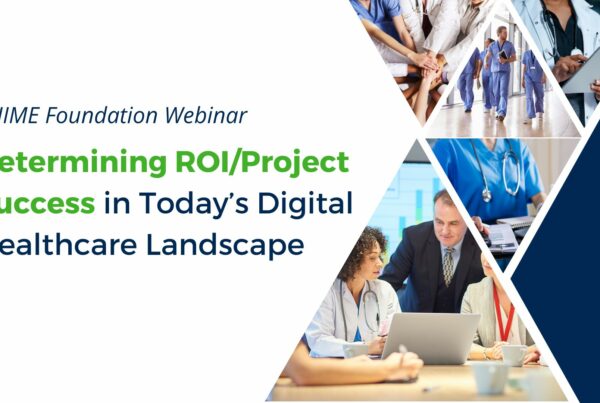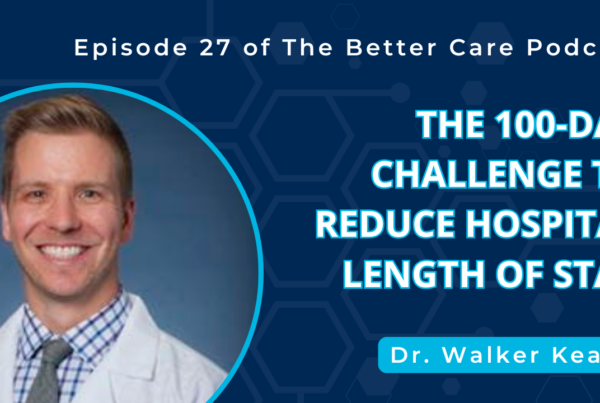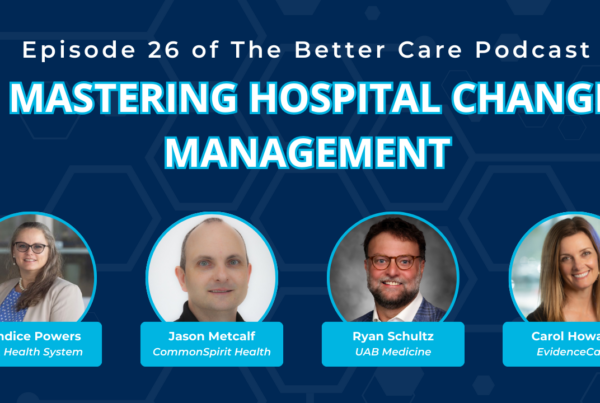Baptist Health, a prominent healthcare provider in Jacksonville, Florida, has recently garnered significant attention for its exemplary implementation of the Epic Electronic Health Record (EHR) system. Within just 11 months of going live, Baptist Health received the Epic Gold Star Level 10 award, a testament to their operational excellence and collaborative culture.
EvidenceCare’s Co-Founder and CMO, Dr. Brian Fengler, interviewed Dr. Stacey Johnston, VP and Chief Applications Officer at Baptist Health, for an episode of The Better Care Podcast to discuss the key factors that contributed to their success, the challenges faced, and their innovative approach to post-implementation optimization and future-focused initiatives. The following article summarizes some of the key points of this episode.
Some quotes have been slightly edited for brevity.
Success Relies on Collaboration
At the foundation of Baptist Health’s successful Epic implementation was their culture of collaboration. With over 1,100 participants involved in the system’s build, including 300 physicians and 100 physician trainers, the project was a collective effort.
This implementation took place during the COVID-19 pandemic, which required a different approach from typical implementations. Although it brought challenges, it necessitated virtual workgroups which offered more seats at the table for various stakeholders and ensured that the system was built with comprehensive input and engagement.
“The Patient Experience Work Group had ninety-five members, which seemed like a lot to Epic. However, I explained that at Baptist, everyone wants a seat at the table, and the virtual environment allowed us to accommodate more people.
The excitement and culture of collaboration were actually enhanced by conducting the entire build during the pandemic. Where we saw opportunities was in how to take those eleven hundred people and socialize the changes to the remaining organization.” – Dr. Stacey Johnston
Overcoming Change Management and Training Challenges
Transitioning to a new EHR system is inherently challenging, particularly in terms of change management and training. At Baptist Health, these challenges were exacerbated by the pandemic and staffing shortages, resulting in insufficient super users and the need for external support.
“The change was rough for many physicians, but there were other challenges as well. Their clinics were short on Medical Assistants, and they didn’t have super users in the clinic. Through our work with the KLAS Arch Collaborative, we learned that our training focused too much on ‘buttonology’—the step-by-step clicking—rather than on workflow training.
If I were to do this again, I would ensure we focused less on buttonology and more on proper at-the-elbow support, workflow training, and enhancing ‘day in the life’ sessions before go-live, making the transition smoother for everyone.” – Dr. Stacey Johnston
To mitigate these challenges, leadership at Baptist Health focused on doctors and made the end user experience a top priority. They enhanced at-the-elbow support, redirected physician calls to support specialists, and made themselves readily available. They reevaluated the training curriculum to improve workflow training.
By collaborating with the Arch Collaborative (a group of healthcare organizations committed to improving the EHR experience through standardized surveys and benchmarking), they were able to analyze signal data to identify and provide targeted training to those struggling with the system, ultimately enhancing overall efficiency.
Achieving Epic Gold Stars Level 10
The Epic Gold Stars Level 10 award is the highest recognition for organizations using Epic’s EHR software. Achieving this places an organization in an estimated range of the top 0.3-4% of all Epic users worldwide, demonstrating their dedication to patients and physicians and their commitment to advancing healthcare technology.
Reaching Epic Gold Stars Level 10 within 11 months is a remarkable achievement, highlighting Baptist Health’s commitment to operational excellence. Dr. Johnston noted that while some aspects of the implementation were challenging, the collective effort and adherence to foundational components were critical.
“When you reach your ten gold stars, there are components related to adoption and pure technical components. The technical components were much easier to achieve, but the ones towards the end, which focused on adoption and utilization of the system, were more challenging.” – Dr. Stacey Johnston
Achieving ten gold stars was a monumental task that required the collective effort of the entire team. It demanded prioritizing this goal above others and ensuring everyone was fully engaged.
“It was all hands on deck. We tabled other tasks to focus on reaching ten gold stars. Everyone participated, from training to informatics, operational and clinical leaders, and technical teams. Achieving ten gold stars eleven months after go-live was truly a system-wide effort.” – Dr. Stacey Johnston
Innovations and Optimizations Post-Implementation
Post-implementation, Baptist Health has continued to innovate and optimize their EHR system. One notable project saved providers 70 million clicks, significantly enhancing efficiency. This was achieved through a partnership with DrFirst, which improved medication history search capabilities and automated the completion of prescription fields.
“Instead of manually clicking in those fields, the information is automatically filled in, allowing nurses and pharmacy techs to accept the states as they are presented. Our time-in-motion study showed that this saved us approximately twenty-two thousand hours of nursing and pharmacy tech time. This not only helps minimize transcription errors but also reduces the number of clicks each caregiver has to perform, saving significant time.” – Dr. Stacey Johnston
Baptist Health is also at the forefront of incorporating AI into healthcare operations, leveraging technology to enhance efficiency. Baptist Health is among the early adopters of Epic’s in-basket messaging solution, which uses generative AI technology to draft clinician responses to patients’ questions and comments for providers to review, edit, and send.
“We found that about sixty percent of the message content is retained, and we aim to increase that to eighty percent. We don’t aim for a full hundred percent because we want to ensure providers can add their own flair to the messages.” – Dr. Stacey Johnston
They have also requested early adoption of Epic’s summarizer programs to assist with discharge summaries. Additionally, they are exploring solutions for computer-assisted physician documentation (CAPD) that uses AI to help physicians create more accurate and comprehensive clinical documentation.
Embracing Innovation
When implementing new technology, it’s crucial to ask, “What problem are we trying to solve?”
Start by identifying the inefficiencies or challenges that require attention within a health system. Then, explore the available tools and technologies that can help improve efficiency. However, that’s just the beginning.
Dr. Johnston highlights three key areas of exploration that must be considered before moving forward with new technology.
“You really need to consider three main areas when evaluating new technology: the clinician’s experience and workflow, patient safety and regulatory requirements, and the return on investment (ROI). These are the key factors we focus on.” – Dr. Stacey Johnston
If an initiative requires high effort and investment without a significant return in clinician experience or ROI, you might reconsider moving forward. However, if an initiative involves minimal effort and the ROI is uncertain, there may be an opportunity to partner with the vendor.
“I think it’s crucial to partner with your vendors and have the chief applications officer lead these discussions. I often say, ‘I like what you’re proposing, but I’m not fully convinced. Let’s work together on some creative financing options. Can you lower your price if we trial this for a period of time?’ We can often pilot solutions that we’re unsure about in terms of ROI. If they prove successful, we will then consider full implementation in the next fiscal year.” – Dr. Stacey Johnston
Baptist Health’s journey with a new Epic EHR implementation exemplifies how a culture of collaboration, targeted support, and a commitment to continuous innovation can lead to exceptional outcomes. Their success story serves as an inspiration for other health systems navigating similar transitions, highlighting the importance of collective effort, strategic planning, and embracing future-focused technologies to improve patient care and operational efficiency.
“At Baptist, we don’t have a dedicated innovation arm; instead, innovation is everyone’s responsibility. We all attend conferences, hear about exciting developments, and bring those ideas back. We may run pilots, and whether they succeed or not, I love being part of a system that embraces innovation. This approach allows technology to support our clinicians in providing better care for our patients.” – Dr. Stacey Johnston
For the full interview between Dr. Brian Fengler and Dr. Stacey Johnston, watch or listen to Episode 16 of The Better Care Podcast.









